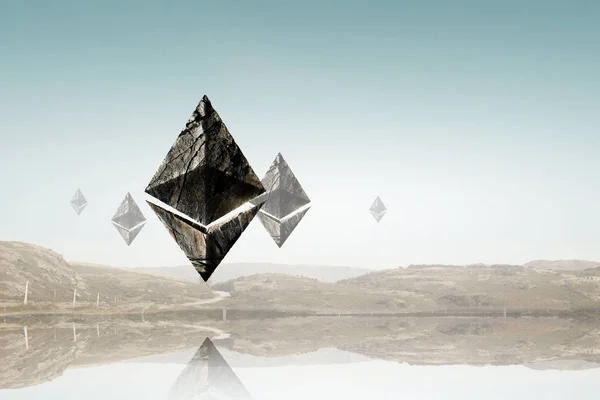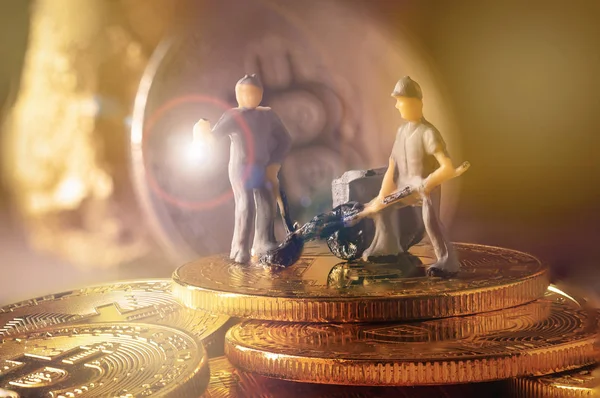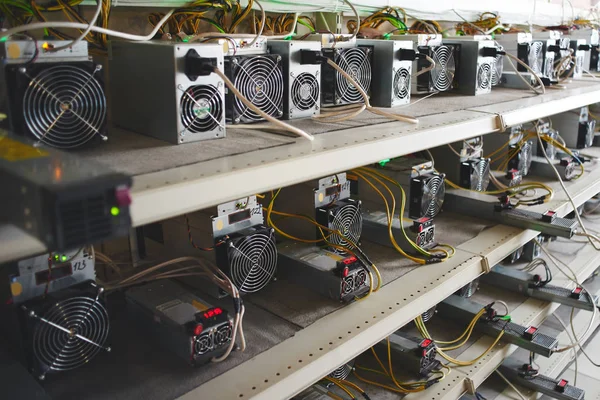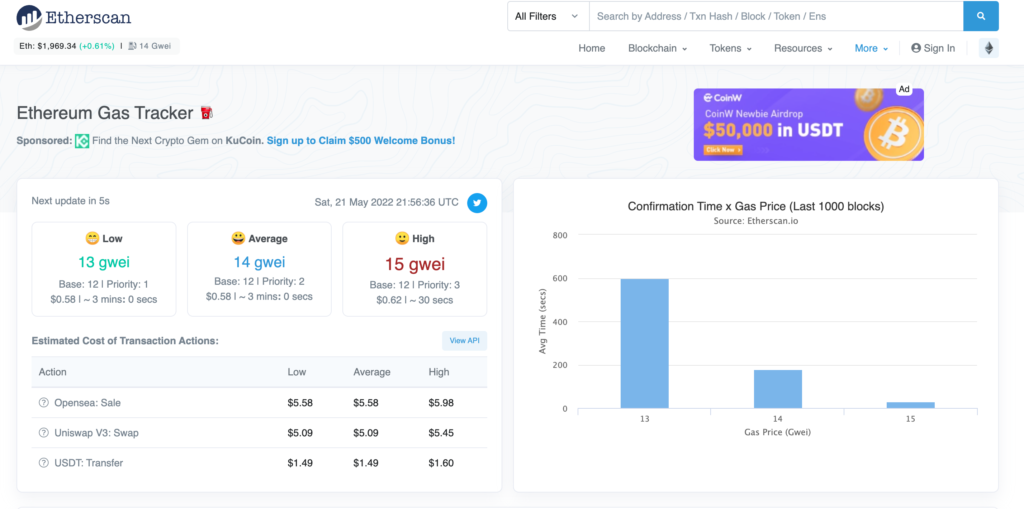
on the Ethereum blockchain.
What are Gas Fees and Why am I Paying them?
In today’s Noob2NFTs article we are going to talk about Gas, as defined in the Glossary of NFT Terms, it is “the cost for transactions on the Ethereum (ETH) blockchain.” Now, why would there be costs you might ask? Because the Ethereum blockchain uses what is called a “proof of work” mining system, just like Bitcoin or many of the other major cryptocurrency blockchains. The miners, which are actually networks of computers, solve complex equations to process and verify transactions on the blockchain. So, for instance, whenever someone sells, and another person buys, an NFT, there is a written log on the blockchain confirming that transaction and all of its variables. These computers have IRL costs to run and maintain, so in order to compensate the owners for this cost (and their work) the blockchain rewards them with the gas fees for completing each transaction.


Now, a lot of people assume, falsely, that OpenSea is the entity that is imposing these fees or that they are in some way in control of them, as they are the world’s largest NFT marketplace and Ethereum NFTs are their largest sales contributor, but this isn’t the case. The cost of gas is determined by the current network congestion on the blockchain at any given moment, not by the marketplace used to facilitate these transactions. This means that if you are on OpenSea and there aren’t many transactions happening at that time, the network has less to compute, therefore gas fees will be lower. The opposite can also be inferred to be true, when the network is bogged down with thousands or even millions of transactions at once, the gas, goes up.
Sometimes when a really popular NFT project launches or releases a secondary NFT collection there can be what’s called a “gas war.” This war isn’t an actual physical conflict, but with so much congestion on the blockchain’s network sometimes the gas can be upwards of several thousand dollars per transaction and, if the network is overwhelmed enough, can cause those attempting those same transactions to fail, which unfortunately will still charge them the gas. Ouch! This just recently happened when Bored Ape Yacht Club launched their Otherdeed NFT virtual land Metaverse collection, essentially shutting down the Ethereum blockchain and causing the gas fees in some cases to skyrocket to over $6,000 per transaction attempt and many of them to fail. Rest assured this happens very rarely and the cost of gas is typically quite reasonable. I have personally paid as much as $200 for a single transaction on a busy day to as little as $6 dollars on a slow one. I have learned that FOMO isn’t a friend and if a transaction can wait for the network to cool down, and the gas prices reflect that, then that is the best time to buy. Now, with that being said, I’m sure some readers are looking at that $200 sign above and thinking that that’s an insane amount of money to pay as a transaction fee, but if the NFT is worth thousands and someone else might snatch it up before you, you might consider it just “the cost of doing business” as I have, but most transactions don’t cost nearly that much, especially if the NFTs aren’t expensive and the network is slow.

that is determined mostly by Ethereum’s network congestion.
One way to avoid processing transactions during peak times is to check current gas prices. Many Discord groups provide this information via a “gas bot” for those in their Discord. If you don’t belong to any Discord’s that track this, another way that you can view it on your own is to visit Etherscan’s Ethereum Gas Tracker. This will show you the low (slow), average (average), and high (fast) cost of completing current transactions on the blockchain. Now, when you go to approve your purchase you can adjust the speed you would prefer the miners attempt to do their job, but if you select a speed so slow that it forces the transaction to fail, then you are out that gas fee AND your transaction didn’t go through, so you lost out on that NFT (or whatever it was you were trying to have processed on the Blockchain) and are poorer for it. Adjusting gas fees is an advanced NFT move that takes further knowledge on how the process works and how to exactly manipulate it to do your bidding without costing you a fortune. If you are brand new to NFTs it might be wise to wait before attempting gas fee manipulation until you are more comfortable and less likely to lose out on any potential purchases due to failed contracts.

The low numbers of gwei could be considered very cheap gas.
The last term to familiarize yourself with is gwei which is “the unit in which gas is calculated in Ethereum.” One gwei is equal to one billionth of Ether or 0.000000001 ETH. As you can see in the screenshot above, a gas tracker will tell you the varying speeds or costs of completing your transaction in gwei. A smaller number of gwei will typically indicate a low cost and that’s what you’re looking for when timing your transactions. If the number of gwei is considerably larger, then that is when you want to avoid completing transactions if possible, but it’s purely subjective on what constitutes expensive or costly gas. You will have to decide when making your purchases on Ethereum if you want to spend what is suggested or not. There have certainly been instances when I have paid more in gas than I wanted to in order snag the NFT that I wanted, but I have also refused a million transactions, because the cost was way above what I was willing to spend, so I either waited, deciding it wasn’t worth it to hit “approve” at that time or I just never completed the transaction at all.
Lastly, one thing to look forward to is what is known as “The Merge” where Ethereum will transfer from ETH to ETH 2.0 which is said to improve scalability, reduce the environmental impact of processing Ethereum, and decrease gas prices all in a seamless merger. So, definitely keep an eye out for that!
This should give all you readers a basic understanding of gas fees, why exactly they exist, and how to avoid paying an exorbitant amount for them. Be sure to come back next week for the next article on everything NFTs. Good luck out there, Noobs!

One Reply to “What is NFT Gas? Gwei?”
Comments are closed.